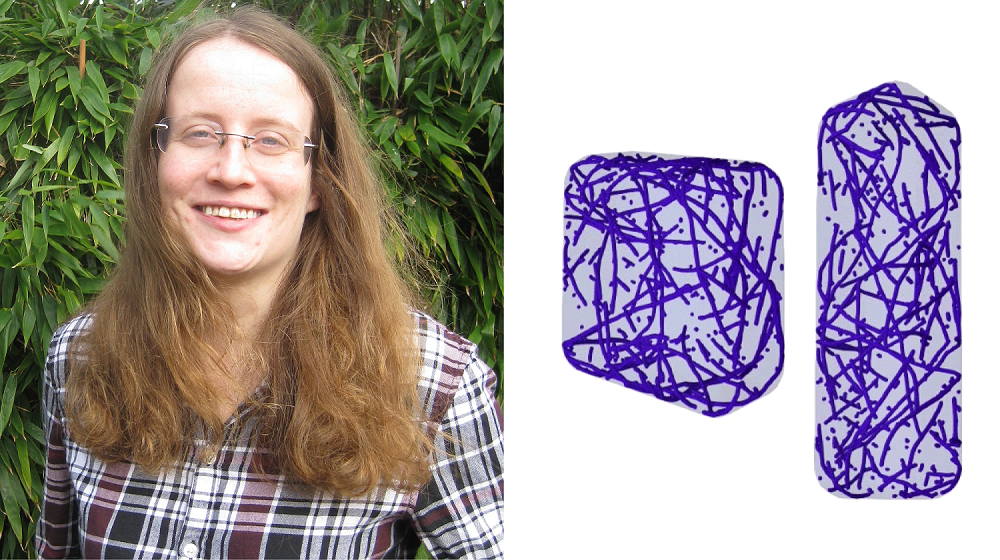
Dr Tamsin Spelman
Research Associate
Tamsin uses computational models and mathematical techniques to study fundamental processes in plant biology.
What are the research question(s) you are trying to answer?
I am looking to answer questions in plant biology using mathematical techniques and computational methods in collaboration with experimental collaborators. One behaviour in fundamental biology we are trying to understand is the movement and shape of the nucleus in the root hair cell of the plant, since we know its movement is necessary for growth of this essential cell. Most of my days are primarily spent in front of a computer or with pen and paper when I am thinking through new ideas, with plenty of meetings and discussions interlaced between that so we can get different perspectives on the problems – essential when working in a multi-disciplinary field.
Why did you choose to study science?
I enjoyed science at school, and was attracted to the logical thought process it required. I was particularly good at mathematics, but at A-level you need to specialise a lot and I wasn't sure what I wanted to do. In the end I was encouraged by my teachers to take further maths in particular which was a great decision, and led to doing a mathematics undergraduate degree. My interest in biology arose much later. At school, I found biology the least interesting of the sciences as it seemed to involve a lot of rote learning without going into details, so I didn't take it for A-level. It was after my degree that I slowly became more involved in progressively more applied biological projects, and have found the subject much more enjoyable this time round. I think my 16-year-old self would have been shocked to think I would be working in biology 15 years later.
What really interests you about science?
It is an opportunity to try to understand and explain the world around us. There are so many interesting behaviours out there and we get to dig down and try to discover what is going on and why. Biology in particular, can be intimidating as it is so complex, but it offers us the chance to fundamentally understand how nature behaves so in the future engineers might be able to reproduce parts or imitations of these systems to push civilization forward.
What advice do you have for girls thinking about studying science at degree level?
Degree level science is fantastic. You are able to go into topics in much more detail than you can at school. You are also able to see how the sciences are all interlaced despite our attempts to put labels to them, for example some of the mathematics course covers what many people think of as physics. It also opens so many doors for whatever career you choose to go into in the future, within science or beyond.
Do you have a female STEM role model?
I greatly respect Professor Julia Gog, who was one of my director of studies when I was an undergraduate and with whom I now teach alongside at Queens'. She has done exceptional research modelling infectious diseases, and her recent work on covid was recognised with her being awarded an OBE. I particularly respect that on top of being a world class researcher, she is also a passionate teacher who cares a great deal about her students.
Read more about Tamsin’s research on her website profile
